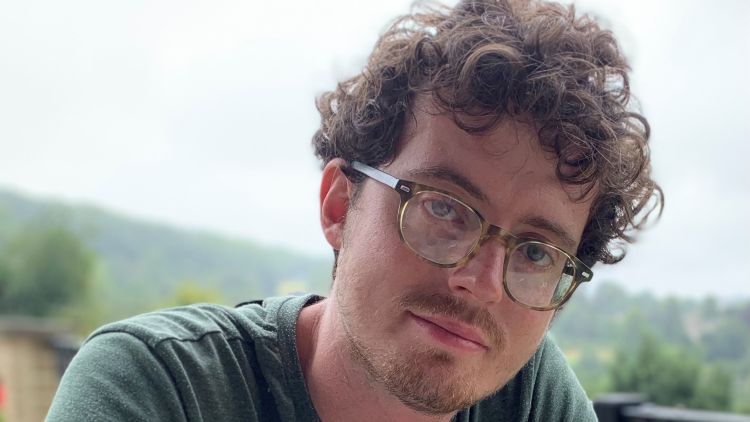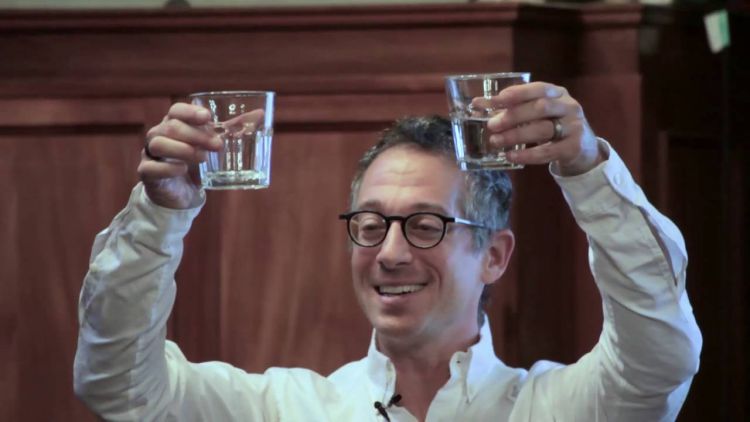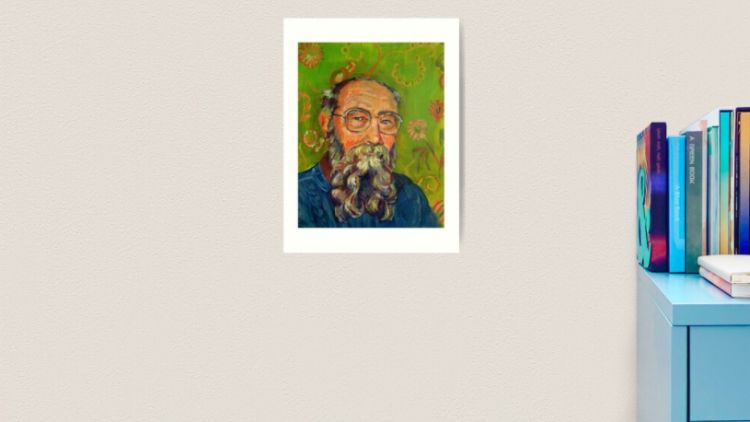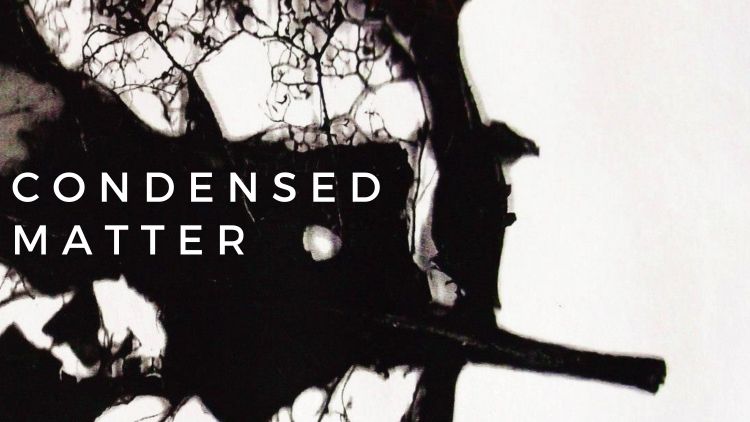Condensed Matter - an Interview with Sam Kimpton-Nye
Where are my fellow lovers of metaphysics and philosophers of science at? It is with great pleasure that we bring to you an original interview with Sam Kimpton-Nye!
Sam is a philosopher at the University of Bristol, where he is Research Associate on the MetaScience project. He has passion for all things metaphysics and philosophy of science, passion which has now boiled over to the world of podcasting.
To borrow Sam’s phrasing, Condensed Matter embodies his attempts to condense ‘recent work in metaphysics and the philosophy of science down to what matters’ for a wider audience.
Having listened to all the of episodes up until now, I am more than happy to publicly endorse Condensed Matter. It is educational, often helping me with my current research by targeting and outlining relevant papers in contemporary philosophy. Yet the content is still digestible, with most of the episodes being approximately 10 minutes in length and filled with Sam’s dulcet English tones. You can find the episodes on Spotify, Apple Podcasts, Google Podcasts, Amazon Podcasts, and in all the other usual places.
Anyway, having stolen some of Sam’s phrasing, I will now begin the interview and let the man speak for himself.

The face behind the mic; the man with the tones.
Hi, Sam. How are you today?
‘Good thanks, James. All the better for doing this!’
And we’re happy to have you! So tell our audience a bit about yourself. Let’s start with philosophy. Where have you studied and worked?
‘I did my undergraduate degree at Birkbeck and I did my MPhilStud and PhD at King’s College London. I then worked as a teaching fellow at King’s, a lecturer at New College of the Humanities and I’m now employed as a research associate at Bristol.’
Impressive. And how did you get into philosophy? What questions drew you in?
‘Well, I had to decide what to do with myself after dropping out of a physics degree, which was a pretty demoralising experience. I thought I’d better get a degree and for some reason I decided on philosophy. I’m not sure why, exactly. I had zero background in philosophy, just a vague sense that I might find it interesting and sure enough I did.
‘As an undergrad, I was particularly drawn in by modality, that is, the philosophy of possibility, necessity and related notions. I could have ploughed on with my physics degree; and if I had, my job prospects would have been better. But what makes statements like these, that is, modal statements true? I found this very puzzling indeed.’
Ha. I see what you did there! That’s a pretty interesting journey. Clearly, you always had an interest in the natural world and it sounds like you made a good decision to switch early on. What are your favourite questions now and why?
‘Right now, I’m interested in questions about explanation and realism. I’ve spent a lot of time thinking about how to explain modality and laws of nature in terms of physical properties, things like charge and mass. But now I’m interested in the question: what constitutes a good, or even an acceptable, explanation of one thing in terms of another?
‘Metaphysics seems to be largely concerned with explaining things but very few explanations in metaphysics really seem to be any good when we drill down into the details. For example, one popular view in the metaphysics of the laws of nature is that laws are explained by the essences of fundamental properties. But on close inspection, this view simply inserts laws into the essences of properties. So, properties aren’t really explaining the laws and, what’s more, the broader metaphysical picture of properties and laws that emerges is not only unexplanatory but borders on being incoherent.
‘In general, I’m worried that the closer we look at our metaphysical posits and interrogate the explanations they are supposed to provide, the more obscure and explanatorily impotent they seem.
‘If metaphysical realism is all about positing new mind-independent metaphysical entities to solve metaphysical problems, then I am concerned for realism. The other question I’m thinking about, then, is something like: to what extent should we be metaphysical realists?’
Interesting. Aspiring metaphysicians like me better up their game! What are you currently researching?
‘Broadly speaking, I’m working on the question “what, if anything, unifies the natural sciences” as part of the MetaScience project at Bristol. My contribution to this project focuses on the metaphysics of properties, laws of nature and modality; I’m interested in how explaining laws and modality in terms of properties may yield insights into how the different sciences relate. And this work has sparked my recent curiosity in broader questions about explanation and realism.’
Now tell us about Condensed Matter. What range of topics can a listener expect to learn about?
‘Listeners can expect to get an overview of recent research in metaphysics and the philosophy of science that is published in academic journals. Though, actually, maybe this is a bit misleading: at the moment, I am publishing one episode a week, and each episode typically covers just one article. So, I am a way off giving anything like a comprehensive overview of recent work.
‘It’s great that there is so much interesting work out there to discuss, but this also means that what I cover is really a snapshot of the field. The choice of articles discussed in the podcast represents my philosophical interests, so it is probably best thought of as a curated overview of what is going on in metaphysics and the philosophy of science. Having said all that, I will try to cover as broad a range of stuff under the umbrella of metaphysics and the philosophy of science as possible.
‘More specifically, listeners can expect to learn about laws of nature, modality, methodological issues in metaphysics and the philosophy of science, chance and probability, modelling in science, explanation in science and metaphysics, natural kinds, social ontology, structuralism, oh and sideways music … ’
Ooo. I’m excited to hear some of that. Where do you record it all? Anywhere luxurious?
‘Ah, I wish! Just at my boring old desk. Maybe I’ll start doing some of the research from a café or the pub.’
I like the jingle. What is it from?
‘Thanks! It’s a royalty-free track from Pixabay, the artist’s name is NaturesEye and the track title is “SKA Podcast / Youtube / Channel Intro”. Very original, I know! Thanks, NaturesEye!’
What inspires you to read even more philosophy in your spare time for Condensed Matter, given that reading philosophy is part of your job description?
‘It is partly because I read a lot for the job that I wanted to make the podcast; it seemed like a fun way to have something a bit more tangible to show for all my time spent reading! And actually, my hope was also that having the podcast would encourage me to read more often and more widely which would help my research, so I suppose the hope is that having the podcast will itself motivate me to read and actually understand more.’
Do you have any particular aims with the podcast?
‘I’d like people to listen and find the thing useful. If I could establish a steady base of people listening to the podcast and getting something out of it, I’d be very pleased.’

In episode 7 of Condensed Matter, ‘The Ground Between the Gaps’, Sam discusses the work of Jonathan Schaffer (pictured) on the explanatory gap between the physical and the mental. Schaffer argues that elusive but apparently pervasive metaphysical grounding relations fill the gap. (Royal Institute of Philosophy)
I know this is a new venture. But do you have any plans to expand or adapt anything about Condensed Matter in the future?
‘My colleague Toby Friend suggested having something like an online discussion board attached to the podcast so that listeners can discuss what they’ve heard. I might try and arrange this, time permitting. I also plan to have more episodes with guests discussing their work—in fact, I have already released one I did with Toby (episode 9). In general, more opportunities for listener interaction and more interview-style episodes would be good, I think.’
I think that’s a good idea. Now … We want to know a bit more about you. So it’s time for a quickfire round! Snappy answers only please.
‘Okay, sure thing!’
Question 1: What’s your number 1 hobby?
‘Right now, playing Hearthstone.’
Question 2: You have a poster of a philosopher in your room. They are your hero. Who is it?
‘David Lewis. I assume I’m not supposed to elaborate on these quickfire answers, so interpret me charitably, as Lewis himself would!’

If Sam chose to have a poster of a philosopher in his room, this would be the poster. Is this statement possibly or necessarily true? Or is it a counterpossible statement? For Sam would never choose to have a poster of a philosopher in his room. Would he? (Redbubble)
Question 3: An alien visits Earth. As a parting gift you give them the three greatest texts of philosophy to read on the way home. What are they?
‘New Work for a Theory of Universals by David Lewis, Realism and the Absence of Value by Shamik Dasgupta, Exhalation by Ted Chiang.’
Question 4: As you hand over the texts you explain to them what philosophy is in one sentence, hoping not to confuse them. What do you say?
‘Philosophy is a massage for the mind that helps you to think more flexibly and see the world in new and interesting ways.’
Question 5: Who do you think the most-underrated philosopher is?
‘Maybe Douglas Hofstadter. He has a fun and unique approach.’
[Refrains from asking you who the most-overrated philosopher is] Question 6: When do your best ideas come to you? In the shower, looking at blue sky … ?
‘Washing up, doing the dishes.’

Can Sam explain why this sight helps him philosophise?
Question 7: What fictional character do you identify with most?
‘Randy Marsh. Charitable interpretations only, remember!’
Question 8: What’s your favourite film?
‘The Empire Strikes Back.’
Question 9: And your desert island disc?
‘The Suburbs by Arcade Fire.’
Question 10: You’re being forced to start university as an undergraduate student again. What are you going to study? It can’t be philosophy.
‘History.’
Moving onto our final question, then: What is your best piece of advice to someone who is thinking about studying philosophy?
‘Try to notice the things you take for granted and try asking yourself why you take them for granted. There aren’t really any silly questions in philosophy, so have a go at questioning the obvious. If you find this fun or illuminating, you’ll probably like philosophy. If you think this a waste of time, then maybe you’re more of a “shut up and calculate” type!’
Aaand it’s over. That was really good fun. Thank you, Sam.
‘Thank you.’


